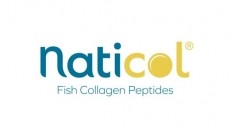In-market control and enforcement of the cosmetics regulation

This topic was a focus of one session at the recent Cosmetics Europe Annual Conference industry knowledge-sharing event in Brussels.
The speakers were:
Birgit Huber, Deputy Director General, IKW
Eva-Maria Kratz, Specialist Cosmetics and REACH, Chemical and Veterinary Investigation Laboratory (CVUA) Karlsruhe
Session highlights
Here are the key session highlights from the event, as compiled by CEAC organisers:
The speakers introduced the German in-market control approach for cosmetics, highlighting the
good collaboration between authorities and industry, which has led to common understanding and
expectations on key enforcement aspects.
How to address ‘unavoidable traces of banned materials’ is challenge for both industry and control
authorities.
The presentation explained how Germany addresses the issue by defining ‘trigger levels’
for individual trace.
These levels are set in a way that 90% of products produced under GMP will be below the trigger level. Products above these levels can still be considered as fully compliant, but control authorities will require a reasoned argumentation from the company on why the level is considered as unavoidable.
Recent trends: clearer definitions
In the discussion, questions were raised how to choose appropriate analytical methods in the inmarket control (Germany has introduced methods to ISO for this purpose).
Recent trends in the in-market control were explained, such as a focus on drug ingredients, cosmetic toys or GMP for personalised products mixed in stores.
A clearer and workable definition of nanomaterials was identified as an important need.
Enforcement of e-commerce products remains a difficult task that will need to be addressed horizontally rather than through sector-specific legislation.
The representative of the German control authorities also confirmed the need for efficient enforcement that is based on risk prioritisation and the principle of proportionality.
The objective of enforcement is not the punishment of non-compliant products, but to achieve compliance. In this respect, control authorities also have a strong educational role.













![Dr. G is continuing to expand in South East Asia with a new store in Malaysia. [Dr. G]](https://www.cosmeticsdesign-europe.com/var/wrbm_gb_food_pharma/storage/images/_aliases/wrbm_tiny/publications/cosmetics/cosmeticsdesign-asia.com/headlines/business-financial/dr.-g-doubles-down-on-sea-expansion-on-the-back-of-sunscreen-popularity/16498790-1-eng-GB/Dr.-G-doubles-down-on-SEA-expansion-on-the-back-of-sunscreen-popularity.jpg)




